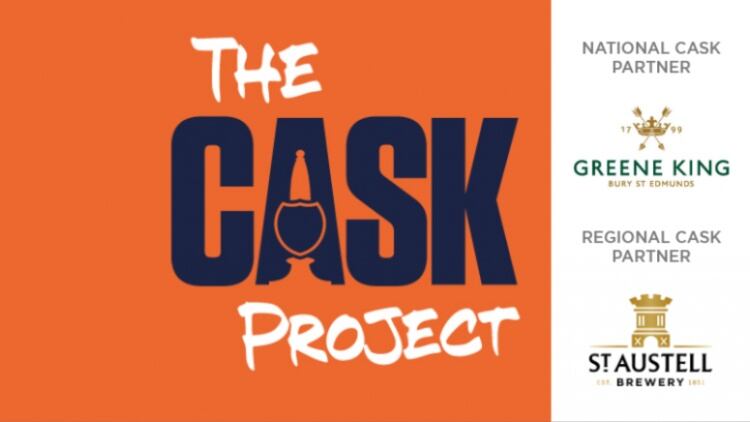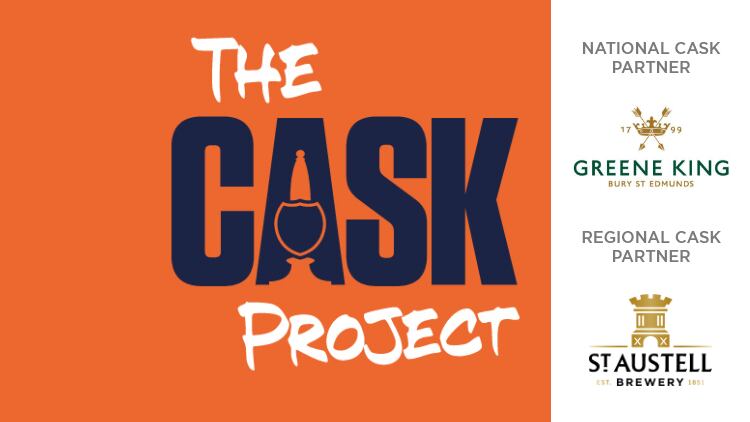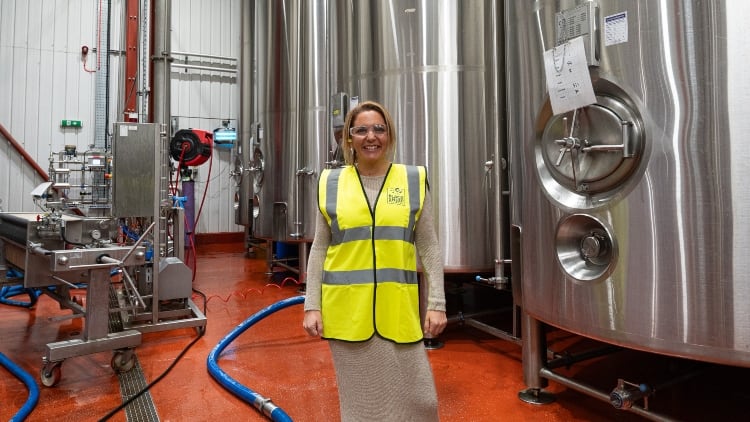Webster told The Morning Advertiser the secret behind the brand’s, which is known for serves such as Jaipur, brewing success has come from doing just that.
He said: “[Evolution] is something cask brewers have had to look at, we've got to move with the consumer, why shouldn't cask be just as exciting as keg beers?
“We've continued to be in growth with cask and I think it's very often about the style.
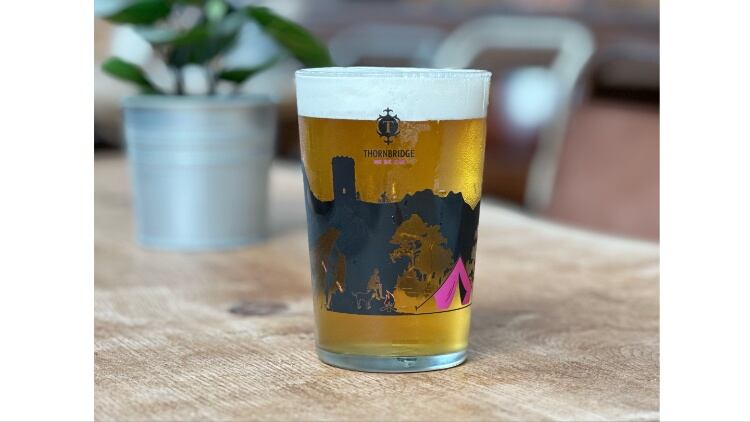
“I'm sure old brown cask beer may well be in decline as people move on, but cask was very much at the forefront of what we were doing when we started and we were brewing modern styles back then.”
Operating this way has paid off for the Derbyshire, based brewery, which was founded by Webster and Jim Harrison in 2005, having seen a 30% uplift in cask sales YOY in 2023 across the on-trade.
Modern styles
Webster added if Thornbridge were to have started now some of the beers it initially introduced “would probably have been kegged”, possibly even its flagship beer, Jaipur.
“Jaipur may never have been a cask beer [if we started now] but the room to market keg beers back in 2005 wasn't there.
“We often brewed modern styles and we've carried on doing so. Although bright cask beer, like Jaipur, is a big part of what we do, the emerging part and the growing part is with the hazy beers and things like that.”
Though brewing cask beer is not without its challenges, making having “passion” for the category essential.
“It has to be looked after and nurtured and given time to settle, that’s the biggest challenge for brewers making cask and why some of the bigger breweries pull away from cask.
"Different breweries have different beers that need different conditions."
When it comes to appealing to those younger pubgoers who are moving on within the category, Webster urged pubs and breweries to engage with consumers and promote the different varieties and styles of cask, which are “not limited to just a golden ale or bets bitter”, but also include ice cream porters or hazy Vermont style session pale ales, for example.
“We've found a lot of new brewers have ventured into cask because it's a great seven-day beer, it's not tied up in tanks for three to five weeks, it's able to push on and get people interested in drinking it. But the younger audience probably want to hear about the different styles."
Though he added the price benefits of cask beer can also be a big factor for younger pubgoers and publicans alike.
“Cask tends to be cheaper than keg beer. We’ve all seen the stories of the £10 pints, but cask is only available in this country and tends to be at a lower price point. Even some of the beers that are 3.5%/4% ABV will tend to be cheaper at the bar than the equivalent on keg.”
However, Webster said he was “split” on the price point of cask, adding while it offers some benefits, it is an “artisan product of the UK” that you can only experience properly in a pub and should be celebrated and priced as such.
Live product
To properly celebrate the category and create the perfect environment for cask to grow in the on-trade, the CEO advised pubs to avoid overstocking on the bar.
“We’re talking about fresh cask beer, which is a live product, so to see a beer turning over every day, every two days, every three days is perfect. Any longer and it will start to decline somewhat.
“As I say, it is an artisan product, it is of this country, so the idea that people understand it's not just a flat warm beer. It's served cool, it's served in the appropriate glassware and hopefully the story can also be told.
“The country is split too on whether you use a sparkler or not. Anywhere from the Midlands up they tend to use sparklers, which gives the beer a nice creamy head. What also helps is serving cask slightly cooler than has been done previously; let the beer warm up in your hands.”
Moreover, the Thornbridge co-founder advised pubs to “buy local” cask beers to maximise freshness and the opportunity to draw people to the category through storytelling.
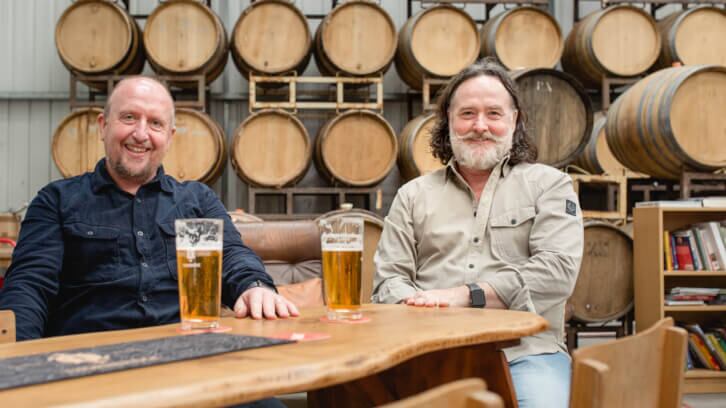
“Buying local is very good because you tend to get a younger beer.
“Having a champion and cellar person in a pub for cask beer is also always good, someone who can look after and cherish it.”
Webster further noted “seasonality was key” to help boost cask sales in pubs and avoid waste, adding its “harder to sell dark beers during the summer months”.
“There is a natural sway towards pale in the warmer months and amber through to black in the autumn and winter months, just like I'm sure more white wine is consumed in the summer than in the winter, where people may be deviate to a red wine.
“It's that idea of warmth; being sat around the fire with a stout or a bitter and on a cold day seems more appealing than an extra pale ale.
“You're always going see IPAS and pale ales working really well in the summer then in the autumn, we tend to find amber ales coming through, something with a little bit more colour, and during the winter months is when the porters and stouts come.”
Looking to the future, the CEO detailed the business had planned to carry on its "trend bucking" trajectory with a “number of releases” in 2024, adding Thornbridge would continue “brewing beers that appeal to young and old with interesting styles”.


